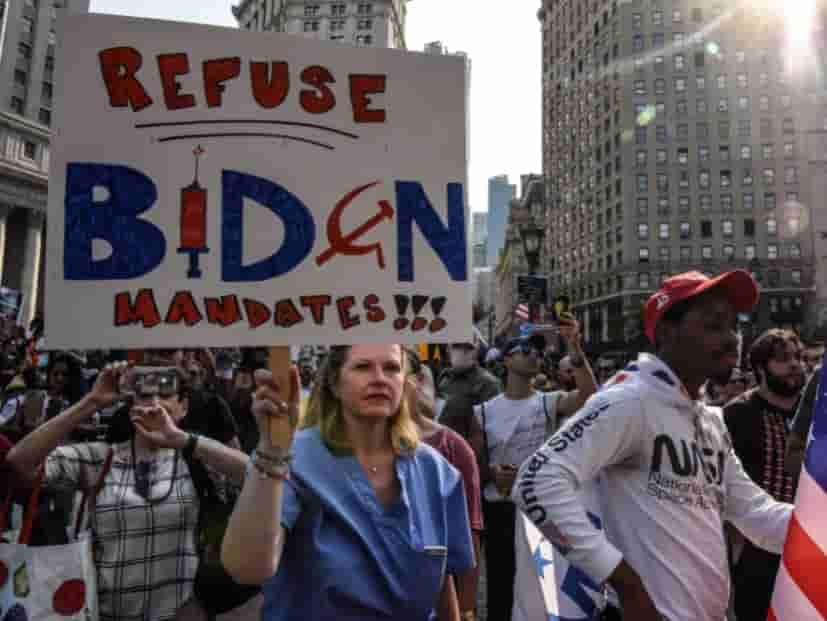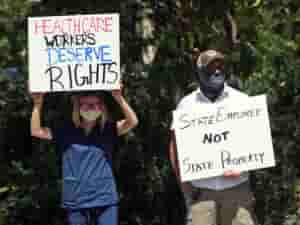Many healthcare leaders across the U.S. are facing a new challenge within their own staff as studies showed that 27% of the country’s health workers are still not yet vaccinated against the COVID19 virus as of July. This challenge adds to the bigger picture where the Delta variant continues to bring a surge of cases and deaths every day.
Aside from the study done by the COVID States Project revealing that 27% of health care workers are still not vaccinated, other research also shows that when the vaccine became available to healthcare workers in December 2020, the rate among nurses and nursing home workers is lower compared to the rate of physicians. This data may be considered a problem since nurses and aides are more likely to be in close contact with patients.
Although data shows that healthcare workers who already received the COVID-19 virus have a vaccine rate higher than the general population, (73% healthcare workers while 64% non-health workers) it doesn’t mean that people working in the industry are not hesitant to get the vaccine.

According to David Lazer of Northeastern University who is the lead researcher on the COVID States Project report, attitudes of health care workers regarding the vaccine are almost the same with the rest of the country. Those living in rural areas who are Republicans have less education and less income which makes them more hesitant to get the vaccine.
“The big takeaway for us is really that health care workers are like everyone else,” Lazer told NPR. “The same things that predict vaccine resistance or reluctance among the general population is also predicted among health care workers,” he added.
And healthcare workers are also affected by COVID-19 misinformation.
Melody Butler, a nurse at Long Island Community Hospital in New York who is also the executive director of the non-profit group Nurses Who Vaccinate reveals that she heard from nurses all over the country the reason why they refuse to get the vaccine.
Reasons include the research about the vaccine was done quickly, vaccines did not receive full approval from the FDA at first, they believe that they already have the antibodies since they are working in the front lines and may have had the virus already. Aside from these, many are also worried that the vaccine may affect fertility.
But all these concerns have already been addressed by experts and evidence clearly shows that vaccines are safe and effective.
Butler noted that the prevalent misinformation plays a big part in vaccine hesitancy. Nurses are not knowledgeable about the ins and outs of vaccine research and the vaccination rate gap between physicians and nurses would boil down to education differences.
“When you have these new diseases popping up, it’s really on nurses to educate themselves on what the research is,” Butler says. “You had nurses who were floundering, looking for information. So now we see this educational gap.”
“We are seeing the nurses who weren’t trained to recognize poorly written studies; they weren’t trained to recognize anti-vaccine propaganda,” she said. “And it’s very convincing. That’s what our struggle is in the nursing community.”
Butler also mentioned that she wants nurses across the country to get the vaccine for them to be safe and protected. According to her, the best way for health care leaders to convince their co-workers to get the vaccine is to operate from a place of compassion.
They need workplaces that “speak to individuals in a compassionate and kind manner,” she said. “Knowing that the person talking to you wants you to get vaccinated not because it’s the law, but because they care.” The vaccination mandates are already pushing health care workers out. Even though most nurses are vaccinated, and more than half are supportive of the vaccine mandates in the workplace, there are still some who don’t want to get vaccinated or get tested mandatory and says that they will rather leave their jobs.
In a hospital in New York, they would no longer accept delivering babies in the hospital since dozens of their staff members already resigned because they don’t want to get the vaccine.
In Houston, 153 hospital workers either resigned or were dismissed due to the vaccine mandate. A problem health care forces are facing in addition to the shortage of nurses that has been a concern ever since.
Hospital leaders like CEO Alan Levine of Ballad Health in Johnson City, Tennessee said that they can not implement the vaccine mandate for their staff (of which 63% are already vaccinated) because nurses would leave their jobs and the hospital would no longer be able to look after all their patients.
“We have about 6,000 nurses in our system,” he says. “If we are five or 10 nurses down in our system, we feel it.”
According to Levine, all ICU beds in the hospital are currently of full capacity. Half of which are occupied by COVID-19 patients.
Levine also said that he is unsure of how the vaccine mandate for health care workers will affect his hospitals, but he is concerned about how this mandate will affect rural health care providers.
“I understand why the president felt the need to announce these mandates nationally, but each region of the country is different,” Levine says. “In rural areas, it’s very difficult.” He adds that he must keep as many nurses as possible who are the only ones capable of taking care of the community.
Also Read: Healthcare Facilities On Verge Of Saturation, Only 7 ICU Beds Left For 11 Counties


